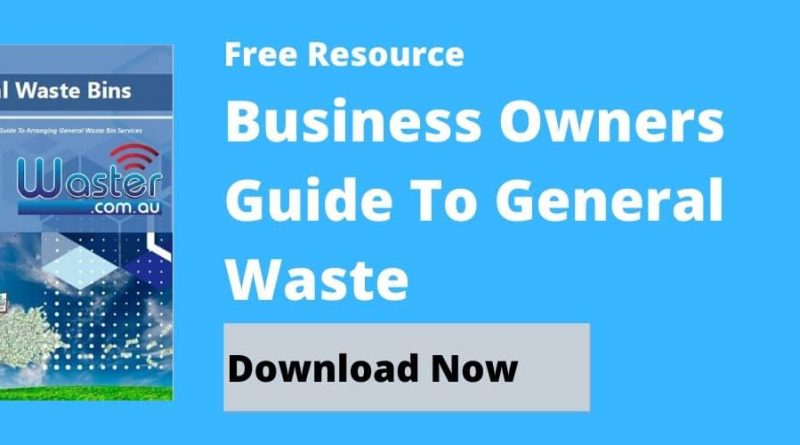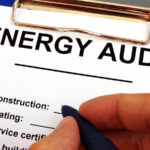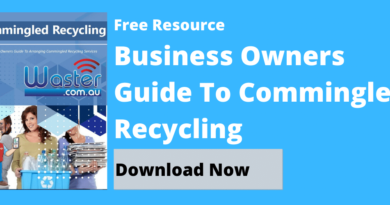Why Your Business Needs A Waste Audit 🗑️
Energy Disrupter
Waste Audit 🗑️: Every business need a waste audit checklist. Not only can you cut costs, but you can also measure how well your business does in many ways. Discover more by reading this blog.
Taking out the rubbish is not as simple as it seems. You may think of it as only a simple chore – get rid of the rubbish then nothing to think about anymore. What you do not know is that it might be costing your business more money than you would want. Moreover, it might even cause you some customers! What can you do about that?
You need to do some research and collect data to know what actions to do and issues to avoid when it comes to your waste composition. In other words, you need to do a waste audit. A waste audit can reveal a lot. In this blog, we will discuss how this can help your business significantly.
>Download Now: Free PDF Business Owners Guide To General Waste Bin Services
A bit about Waster
Before we continue discussing everything you should know about waste audits, let me first share Waster with you.
Waster provides you with innovative solutions for your business’s waste management and recycling needs. Moreover, we provide flexible, 30-day contracts instead of the typical lock-in contracts, which proves to be better.
Click on the blue button to learn more.
READ: Health And Safety Waste Management 🗑️
Everything you should know about waste audits
First and foremost, let us state the definition of waste audit for those unfamiliar with the term.
A waste audit means physically and methodologically analysing a business’s waste stream. For an easier understanding, think about it this way: an auditor goes to a business, checks through the produced and stored waste, classifies items thrown in the rubbish bin, record what they have seen and analyses the data gathered. As a result of this action, businesses can easily identify the common waste they either throw away, recycle, compost or divert through other ways. In addition, they can discover how much waste they produce – listed by their weight or volume inside the bins.
Importance of a waste audit
Is a waste audit really that important?
Obviously, the answer to that would be yes. Conducting a waste audit for your business can ensure that your disposed of waste goes to the right place. Furthermore, it gives businesses the golden opportunity to minimise their environmental impact, which some customers look for in a business. Customer loyalty is very important for a business and knowing that you are an environmentally friendly one can make them stay with you for a long time.
A waste audit also gives businesses an idea of their operations’ effectiveness. Are your waste and recycling efforts working properly or not? A breakdown of what you do can either uncover some ongoing waste problems or highlight what you do right. As a result, it can make you change or retain some waste and recycling operations to improve efficiency in waste management.
In our business customer’s case, they conducted a waste audit and found out that some recyclable materials end up in their rubbish bin, which eventually gets sent to landfill. Now that they have found that error out, they can now correct it and chuck the recyclables in the recycling bin. They have improved their waste and recycling programs, as a result.
Cutting costs
Probably the biggest benefit that a waste audit can give is saving the business money. You can reduce your operating costs this way. A waste audit optimises your strategy which results in more efficiency. And, with efficiency comes cost savings.
The example business customer we mentioned above not only increased their operations effectively, but they also saved some money because they were able to reduce their stored waste in the general waste/rubbish bin. In case you did not know, having less rubbish in the general waste bin reduces your hauling fees, which can increase yearly due to waste or landfill levies.
[embedded content]
Can you do a waste audit yourself?
Could or should you do a waste audit yourself and not rely on professional help (i.e., a third-party waste audit team)?
The answer: it depends. If your business produces significantly less trash, then you can conduct one on your own. An example would be office-based businesses that mainly produce paper waste along with other employees’ rubbish.
But still, there is no losing when it comes to getting professional help when it comes to waste audits. An example of a known waste audit conductor is Suez.
How to conduct a waste audit
Conducting one requires the help of employees. First, you have to form a waste auditing team, preferably one from every department. Remember that everyone is responsible for the waste stream of the business, so help is certainly needed. Even if you get professional help, it is important to remember that you have your own audit team from your own company.
Second, classify your produced waste. Take note of what rubbish you mostly produce in your business and put them in different categories. Examples of categories include paper, cardboard, plastic, aluminium cans, food waste and more.
Third step: make sure you have the necessary equipment to ensure the health, safety and working efficiency of sorting rubbish. Gloves, boxes and bags are just some of the examples needed. You can also get face masks to work safer.
Next comes sorting the rubbish. You can sort them into the following categories:
- solid waste
- liquid waste
- compostable waste
- hazardous waste
- recyclable waste
Lastly, you can now analyse your findings. Compare the data gathered from each waste category and present them through a report. By doing that, you can now find out what is working and not working to further improve your business’s waste habits.
Additional, final tips from Waster
Now that you have successfully conducted a waste audit in your business, what more can you do to improve waste and recycling operations? Here are some tips:
- Recycle more by booking a recycling service – much better if the service specialises in certain waste your business usually produces.
- Impart the importance of recycling to all your employees and encourage them to do their part to make operations easier.
- Find ways to reduce the waste you produce.
- Reuse if you can.
- Make sure you have the proper bin size and service (i.e., you might need a bigger bin; you might need a different collection schedule, etc.)
More things you need to know about Waster
If you’re looking for other waste management and recycling bins, take a look at our waste recycling shop and find the best deals in terms of pricing and services.
Also, please call 1300 WASTER (1300 927 837), or email us at [email protected] if you have any further questions.

















